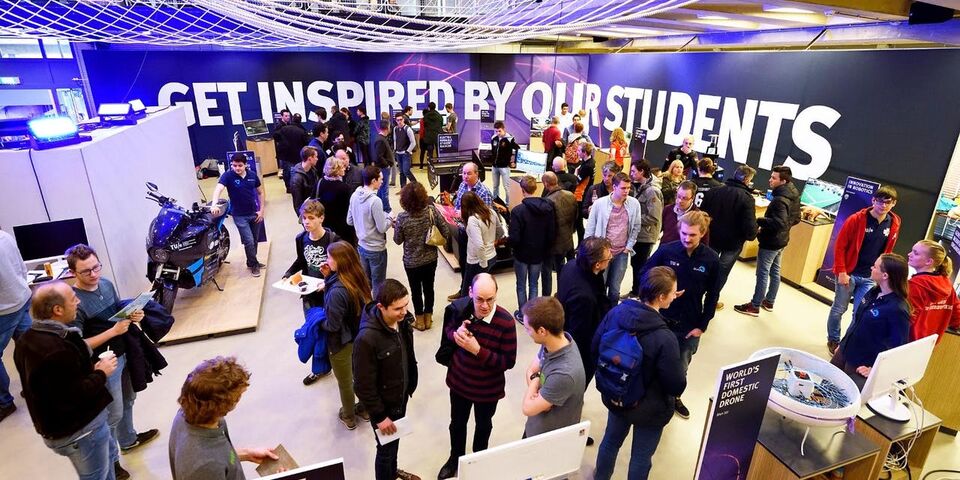Without funding, more admission freezes likely at TU/e
In the coming academic year TU/e expects to see an increase in its Bachelor's intake of at least 7 percent. Reason enough for President of the Executive Board Jan Mengelers to voice his concerns in a letter to the minister. Funding from The Hague is necessary, otherwise admission freezes look likely for many programs.
“Are we going to put on the brakes or lose all control?” Mengelers fears that without additional resources these are the options, and naturally he is choosing to apply the brakes. TU/e has already reported that in the academic year 2018/2019 decentralized selection will be introduced for the programs Industrial Design, Biomedical Engineering, Medical Sciences and Technology, Industrial Engineering and Management Sciences, and Software Science. The Executive Board President has let it be known that the maximum limit is now also looming for the programs Mechanical Engineering, Electrical Engineering, Applied Physics, and Architecture, Building and Planning - as early as the coming academic year - and that there too decentralized selection must likely be applied for. That would be for the academic year 2019/2020, not as soon as 2018/2019.
Mengelers describes this as ‘bitter necessity to guarantee the quality of the education and to guarantee that growth remains manageable in terms of the burden on staff and facilities. This is notwithstanding the desire and necessity of training a greater number of highly qualified engineers.’
The Executive Board President also emphasized that any freezing of student admissions ‘is not the only answer to the current increase in student numbers'. “We will certainly be investigating how we can accommodate this increase within the standard process, for example with timetabling possibilities. It is not our intention to make people anxious by announcing a freeze on student admissions. This is something we are required to announce in good time and we will do so in a controlled manner.”
According to the Executive Board President, Minister Bussemaker should regard this letter as an expression of concern and as prior notice of forthcoming measures necessary to guarantee the continuance of quality education and research at our magnificent university.’
The letter has also been sent to VNO-NCW, FME, the CEOs of Philips, DAF Trucks, ASML, NXP, VDL and DSM, the mayor of Eindhoven and the King's Commissioner. Philips' top executive Frans van Houten is quoted as saying in the Eindhovens Dagblad newspaper that 'a freeze on the training of new talent presents a major problem primarily for the small and medium-sized enterprises (SMEs) in this region'.
The VSNU is even reporting 22 percent growth for TU/e in registrations compared with the present academic year. But it is the uncorrected figures of all universities that make up the national average. After corrections in the academic year 2017-2018, TU/e expects to see growth of at least 7 percent in its Bachelor's intake. Expectations are that in 2020 TU/e will be heading towards a student body numbering 15,000 students. Five years ago, in 2012, our university had only 7,500 students.
In total some 82,000 prospective students have registered for Bachelor's programs at Dutch universities. In Eindhoven 2,196 prospective students have now enrolled. Prospective students have until October 1st at the latest to transform a registration into an enrolment. When all the enrolment conditions have been met (diploma, correct preparatory education, tuition fee paid) the education institution converts the registration into an actual enrolment. Only then are the final figures available.


Discussion